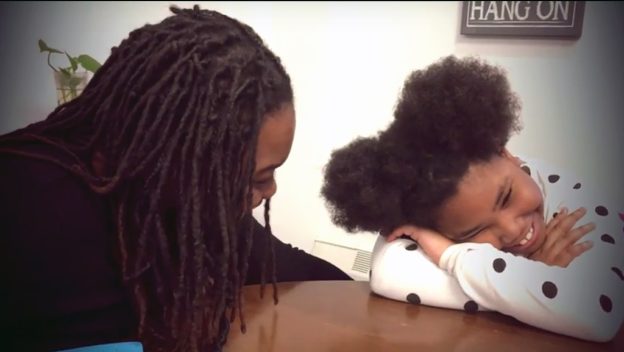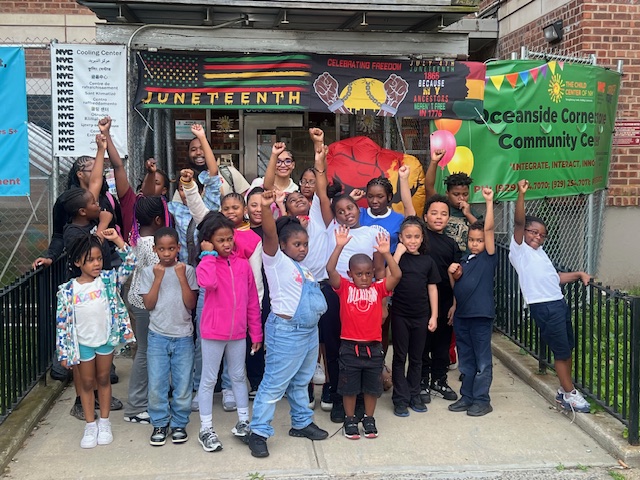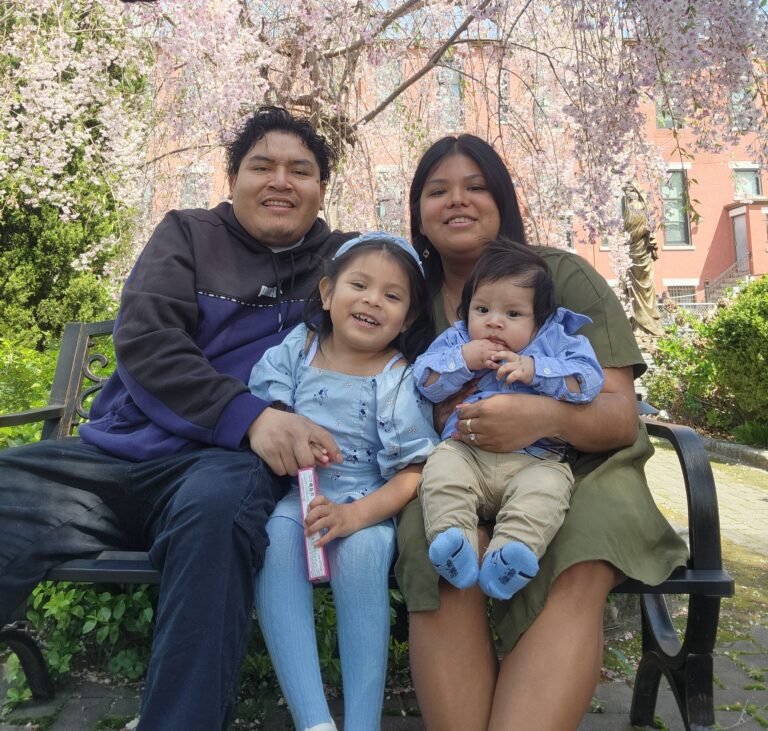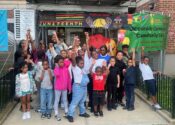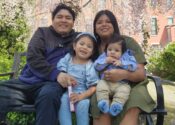By Tina Reynolds, MSW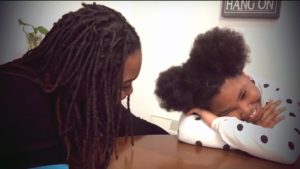
Project Director, A Vision for Tele-Visiting
When we picture families paying tribute to Mom on Mother’s Day, we don’t tend to envision the celebration in a prison. But that scenario is a reality for many American children, and an out-of-reach dream for others.
More than 2.7 million children in the U.S. have an incarcerated parent. That’s one in 28 children. One in nine African American children (11.4%), one in 28 Hispanic children (3.5%), and one in 57 white children (1.8%) in the United States have an incarcerated parent. Approximately half of children with incarcerated parents are under ten years old, and about 10 million children have experienced parental incarceration at some point in their lives.
Women incarceration numbers are the fastest growing in the United States, and the majority of incarcerated women are mothers. Yet the serious and unique challenges their children face most often go unnoticed and unaddressed by the professionals — such as teachers and social workers — who play integral roles in their lives.
My work at the Child Center of NY’s A Vision for Tele-Visiting (AVTV) program — along with memories of my own incarceration decades ago — has brought me face to face with the particular issues incarcerated mothers are up against. AVTV offers tele-visiting services to women who reside at Rikers Island, Bedford Hills, and Taconic Correctional Facility. Research strongly suggests that intervening in the lives of incarcerated parents and their children to preserve and strengthen positive family connections can yield positive societal benefits. AVTV offers wraparound services to families who have an incarcerated loved one, in the form of both practical support, such as job placement assistance and benefits counseling, and emotional support in the form of youth groups and activities, caregiver groups, and counseling.
Through mothers’ incarceration, a host of nearly unbearable realities come into the picture: abandonment of their children, shame of the decisions and circumstance that brought them behind bars, and the guilt of the burden they have placed on their families who step in to take on their responsibilities in their absence. But these mothers’ love for their children and ability to parent behind bars has strengthened my dedication and commitment to mothers impacted by incarceration. The resilience expressed by incarcerated mothers is absolutely phenomenal.
For this Mother’s Day, I would like to highlight a family who epitomizes this resilience and continues to grow emotionally during Mom’s incarceration. Ayanna has been incarcerated for almost four years. During her absence, she has kept close ties with her biological mother and foster mother, who live together and co-parent Ayanna’s five children. This has been a challenge for all, but there is also an abundance of love and forgiveness within this family. I met Ayanna during a visit to one of the women’s state facilities. She was engaging, positive, fully self-expressed, and very proud of the way in which she continued to parent her children from behind bars. Making daily phone calls, checking in on homework, and resolving sibling squabbles is a part of her daily conversations with her children in addition to her expressions of unconditional love. She holds her children responsible for their mistakes, is supportive of their efforts to get good grades in school and helps them strengthen their relationships with each other. She states, “Family is everything” — and her actions prove it. She is also aligned with her mother and foster mom, following up with the guidelines they have developed to support the children in her absence. In addition, she has had quarterly family reunification visits and monthly physical visits with all of her children, along with monthly tele-visits.
What’s striking about this family is the evidence of love and forgiveness. The children have been supported, and their love for their mother has been upheld and respected during her incarceration.
More than a few of the women I’ve met and assist work through personal hurdles during incarceration. Some seek counseling, medical care, services, and support from jail and prison staff and volunteer programs; many acquire their GED and gain new skills so they can grow and gain self-efficacy; and a lot of them strengthen their parenting skills during their incarceration and to prepare them for their ultimate return after serving time. What is most important is the love the children have for their incarcerated parent, and when that love is honored and offered dignity by those who are taking care of them, they tend to fare better.
But even as we support these children on the incarceration side, we need to acknowledge that they don’t live in a vacuum. After they visit with their incarcerated parent, they go back to their communities and schools and may face a different reality. That’s why we also need to ask, “How do we make an impact on the lives of children whose parents are incarcerated in the context of their everyday lives?”
One way is to ensure that social workers, teachers, and other professionals who work with children with this particular experience understand the unique challenges and complex emotions they face. Children with incarcerated parents need people in their lives who see the issues of incarceration as inclusive within the challenges children face when they have a missing parent for any reason. In this case, the “missing” is ambiguous: Their parents are there but not there, and the nature of their parents’ missing is oftentimes judged negatively, the end result being (consciously or not) that the children are seen as the sum total of their parent’s decisions.
Professionals also need to recognize the internalized trauma of parental incarceration, and offer support that addresses the whole situation, not just the presenting issue (such as disruptive behavior in school, anxiety, etc.). By being a confidant, offering safe spaces, and encouraging freedom of expression — and truly seeing the child as an individual — these professionals can foster a sense of trust that gets at the root causes of the presenting behavior, so that the behaviors don’t just resurface in different ways.
The first step in offering these safe spaces is to simply gain knowledge. Understanding the broader perspective of criminalization, and the devastating effects it has on the poor and people of color, will go a long way toward being able to truly support the children affected.
Since children of incarcerated parents often must struggle with their own shame and feelings of powerlessness, another thing teachers and social workers can do is ensure these safe spaces are a place where young people know that they can have a voice. Their experience matters, and one of the best ways to show them that is to foster leadership development and encourage them to advocate for themselves. In this way, they go from a place of powerlessness to one of empowerment, and this can have a lasting impact on a child’s self-concept and future choices.
My colleagues working in criminal justice have known this for years, but the knowledge hasn’t really made its way to our public schools and other places where it would help children the most.
A lot of attention around Mother’s Day is dedicated to issues commonly thought of as “women’s issues,” such as health care and maternity leave. They are worthy goals, and I support them. But mothers like Ayanna, and their unique challenges, also deserve to be a part of the conversation. We can best honor them this Mother’s Day by seeing them as mothers — not just incarcerated mothers — and not only celebrating them, but also supporting them so that they, and their children, can flourish.
